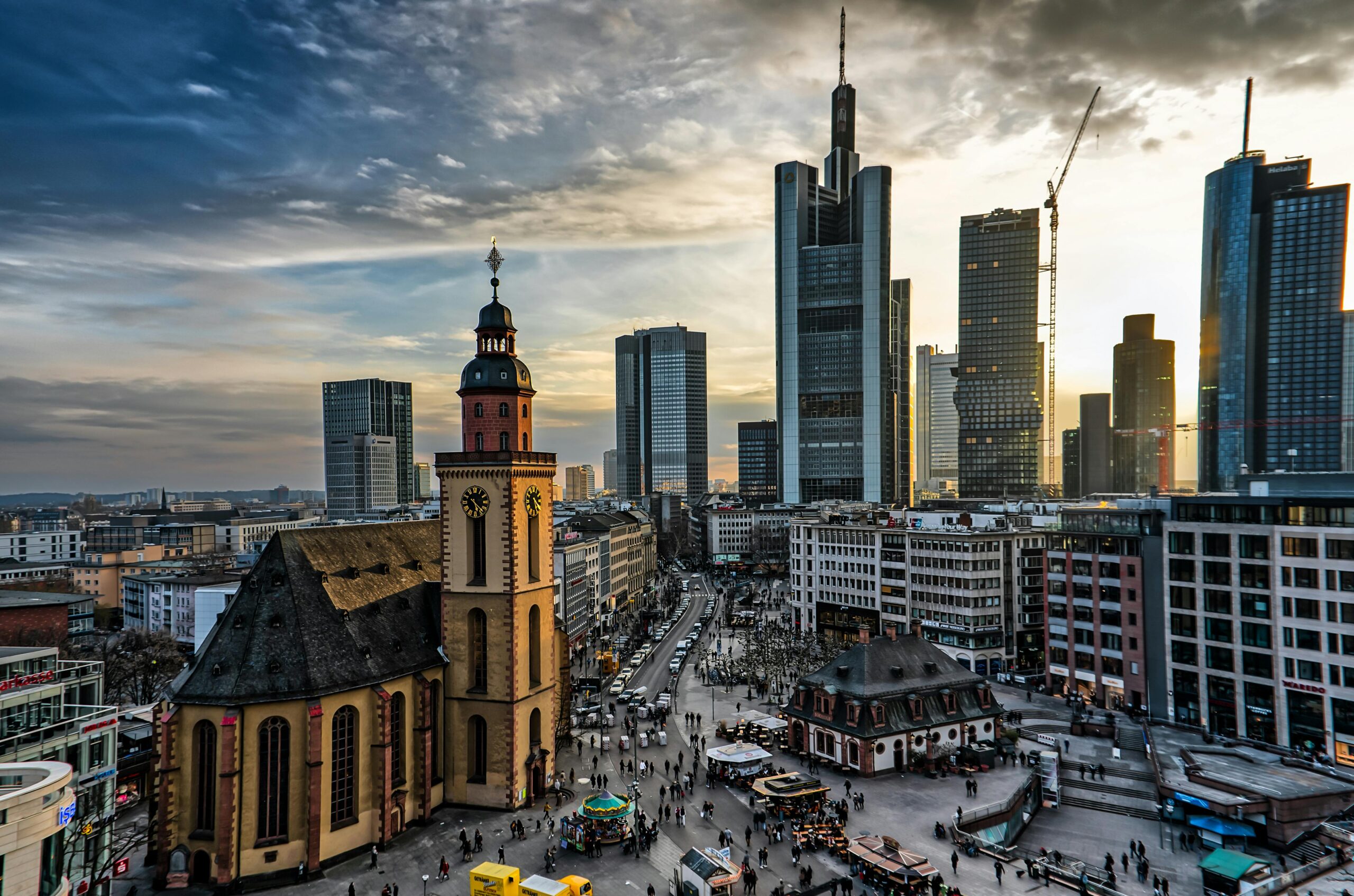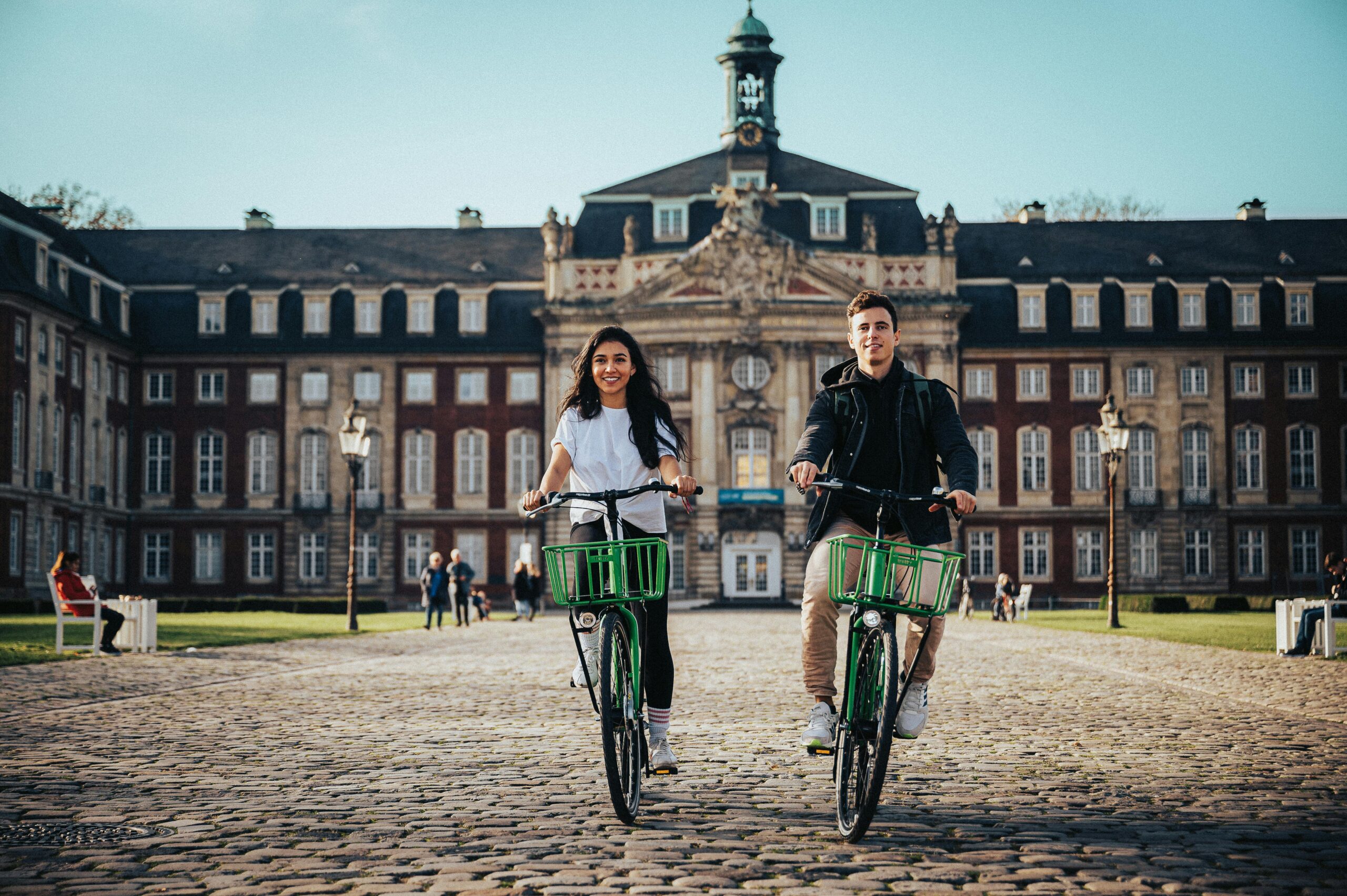Frankfurt am Main, often called the “Gateway to Europe,” is a bustling metropolis combining modernity, history, and culture. Famous for its skyline, international trade fairs, and financial institutions, Frankfurt is not just a business hub but also a vibrant city for students, professionals, and travelers.
This blog explores why Frankfurt is one of Germany’s most dynamic cities and a must-visit destination.
1. Why Frankfurt Captivates
Frankfurt offers a unique blend of attractions:
- Global Financial Hub: Home to the European Central Bank and major financial institutions.
- Cultural Heritage: Rich history dating back to the Roman Empire, with landmarks like Römer and Goethe House.
- Educational Excellence: World-class universities and research centers.
- Green Spaces: Beautiful parks and proximity to the Taunus mountain range.
2. Leading Universities in Frankfurt
Goethe University Frankfurt
- A renowned research university offering diverse programs in economics, law, medicine, and social sciences.
- The Westend Campus is one of the most beautiful in Europe.
Frankfurt University of Applied Sciences
- Focuses on practical and career-oriented programs in engineering, business, and social work.
Frankfurt School of Finance & Management
- One of Europe’s leading business schools, specializing in finance, management, and economics.
3. Career Opportunities in Frankfurt
Frankfurt is a global magnet for professionals, especially in these sectors:
- Banking and Finance: Home to Deutsche Bank, Commerzbank, and the European Central Bank.
- Technology: A growing tech scene with startups and established companies.
- Logistics and Trade: Thanks to its central location and Frankfurt Airport, one of the world’s busiest hubs.
- Education and Research: Opportunities in academic institutions and think tanks.
4. Frankfurt’s Iconic Attractions
Römerberg
- The historic heart of Frankfurt, featuring half-timbered houses and charming cobblestone streets.
Main Tower
- A modern skyscraper with an observation deck offering panoramic views of the city.
Städel Museum
- One of Europe’s most important art museums, showcasing works from the Renaissance to contemporary art.
Palmengarten
- A lush botanical garden, perfect for relaxation and nature lovers.
Zeil Shopping Street
- A bustling area for shopping enthusiasts, offering everything from high-end brands to local boutiques.
5. Student Life in Frankfurt
Frankfurt’s vibrant student community benefits from:
- Diverse Cultural Scene: Events, concerts, and festivals throughout the year.
- Affordable Living: Student discounts on transport, food, and entertainment.
- Networking Opportunities: Access to multinational companies and networking events.
6. Cost of Living in Frankfurt
While Frankfurt is known for its high living standards, careful planning can make it manageable:
| Expense | Approximate Cost (EUR) |
|---|---|
| Accommodation | 700–1,200 |
| Food & Groceries | 250–350 |
| Transportation | 90–120 |
| Entertainment | 150–250 |
Tip: Shared apartments (WG) and student housing are popular among students to save costs.
7. Getting Around Frankfurt
Frankfurt boasts excellent connectivity:
- Public Transport: The RMV network includes U-Bahn, S-Bahn, buses, and trams.
- Cycling: The city is bike-friendly, with plenty of dedicated lanes.
- Frankfurt Airport: A gateway to the world, offering flights to numerous destinations.
8. Festivals and Events in Frankfurt
Frankfurt Book Fair
- The world’s largest trade fair for books, attracting publishers, authors, and book lovers.
Christmas Market
- A magical event held in Römerberg, offering festive stalls, food, and decorations.
Museum Embankment Festival (Museumsuferfest)
- Celebrates Frankfurt’s rich cultural heritage with music, food, and art.
Apfelwein Festival
- Dedicated to Frankfurt’s traditional apple wine, featuring tastings and local delicacies.
FAQs About Frankfurt
1. What makes Frankfurt unique among German cities?
Frankfurt’s modern skyline, international significance, and blend of business and culture make it stand out.
2. Is Frankfurt student-friendly?
Yes, with excellent universities, cultural activities, and opportunities for internships and networking.
3. What industries dominate Frankfurt’s economy?
Banking, finance, logistics, technology, and education are major sectors.
4. How do I find affordable accommodation in Frankfurt?
Check out platforms like WG-Gesucht and ImmoScout24 for shared housing and student apartments.
5. When is the best time to visit Frankfurt?
Spring (March to May) and autumn (September to November) offer pleasant weather and fewer crowds.
Conclusion
Frankfurt is much more than a financial center; it’s a city that balances innovation with tradition, offering endless opportunities for students, professionals, and visitors. Whether you’re exploring its historic landmarks, advancing your career, or immersing yourself in its culture, Frankfurt leaves a lasting impression.
Plan your journey to Frankfurt and experience the charm of this global city!


